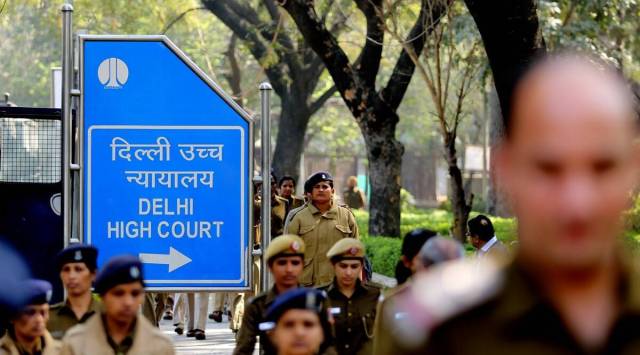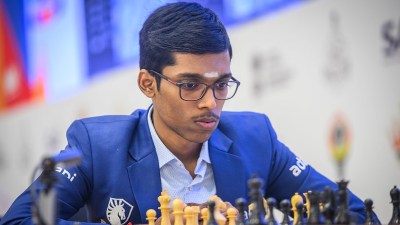UCC: Delhi HC asks lawyer to file prayers of similar pleas filed before SC
Stating that Article 44 creates an obligation upon the State to endeavor to secure for citizens a Uniform Civil Code, the Centre said the provision is provided to effect integration of India by bringing various communities on the common platform on matters that are presently governed by diverse personal laws.
 “As and when the report of the Law Commission in the matter is received, the government would examine the same in consultation with various stakeholders involved in the matter,” the government said. (Express Photo)
“As and when the report of the Law Commission in the matter is received, the government would examine the same in consultation with various stakeholders involved in the matter,” the government said. (Express Photo) The Delhi High Court on Tuesday asked advocate and PIL petitioner Ashwini Kumar Upadhyay, seeking implementation of a Uniform Civil Code (UCC), to place before it the prayers made by him before the Supreme Court in similar matters.
A division bench of Chief Justice Satish Chandra Sharma and Justice Subramonium Prasad was informed that a common order was passed in 10 cases on March 29 in which four cases were filed by the petitioner in respect of gender and religion neutral legislation and in 2015 he had also withdrawn a plea in relation to UCC in 2015.
The HC thereafter asked Upadhyay to file the prayers in those cases filed by him before the apex court in four weeks. The court said that they will first see whether the plea is maintainable or not and listed the matter for August 3.
The SC, in its order in the said batch, had said, “On a considered view of the pleadings and the submissions, we are not inclined to entertain the petitions under Article 32 of the Constitution. The grant of relief in these proceedings would necessitate a direction for the enactment of law, a gender-neutral and religion-neutral legislation, as the petitioner has described it. Enactment of legislation lies exclusively within the domain of the legislature. It is a well-settled position that a mandamus cannot be issued to the legislature to enact a law.”
The apex court bench comprising the Chief Justice of India D Y Chandrachud and Justices P S Narasimha and J B Pardiwala, while disposing of the pleas, said, “As regards the prayer for a direction to the Law Commission to prepare a report, we see no reason to entertain the request since ultimately it is in aid of the enactment of legislation which falls in the legislative domain.”
Previously, the Centre, through the Ministry of Law and Justice, in its response to a 2019 plea moved by Upadhyay before the HC had said, “In view of the importance of the subject matter and sensitivity involved, which requires in-depth study of the provisions of various personal laws governing different communities, the Centre requested the Law Commission of India to undertake examination of various issues relating to the Uniform Civil Code and to make recommendation thereof.”
“As and when the report of the Law Commission in the matter is received, the government would examine the same in consultation with various stakeholders involved in the matter,” the government said.
Stating that Article 44 creates an obligation upon the State to endeavor to secure for citizens a Uniform Civil Code, the Centre said the provision is provided to effect integration of India by bringing various communities on the common platform on matters that are presently governed by diverse personal laws.
In the petition, Upadhyay has argued that “diversity in personal matters along with religious differentiation” leads to “sentimental tension between different communities” and that the object of Article 44 is to introduce a common civil code for all “which is essential to promote fraternity, unity and national integration”.







